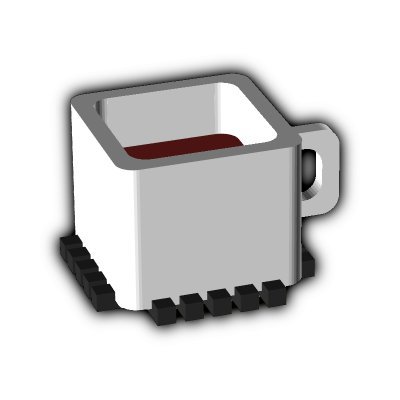
Sky
@madsky98
Followers
2,020
Following
70
Media
0
Statuses
1,551
Explore trending content on Musk Viewer
Eminem
• 216414 Tweets
River
• 199998 Tweets
Celtics
• 151644 Tweets
LeBron
• 120594 Tweets
Lakers
• 87996 Tweets
Deyverson
• 77402 Tweets
Tulsi
• 75680 Tweets
Knicks
• 74679 Tweets
Mineiro
• 67580 Tweets
John Kelly
• 65117 Tweets
Tatum
• 64374 Tweets
Gallardo
• 51042 Tweets
Nacho
• 39811 Tweets
KARIME X MONTSE Y JOE
• 38452 Tweets
Fernando Valenzuela
• 34077 Tweets
GALA X MOJOE
• 32288 Tweets
Fonseca
• 30995 Tweets
GARIME X MOJOE
• 30027 Tweets
Timberwolves
• 26374 Tweets
#RoçaAFazenda
• 22527 Tweets
The Next Prince Q13
• 22434 Tweets
Monumental
• 22402 Tweets
Luana
• 20789 Tweets
Borja
• 20424 Tweets
Mikal Bridges
• 19145 Tweets
東京メトロ
• 15244 Tweets
Mastantuono
• 13507 Tweets
Daisuke
• 13257 Tweets
Randle
• 12347 Tweets
Gobert
• 10998 Tweets
Paulo Diaz
• 10730 Tweets
Last Seen Profiles
@mathenglish4all
The correct answer is:
a) used for
Explanation:
"Used for" is followed by a noun or a gerund (verb+ing) to indicate the purpose of something. In this case, "cutting" is a gerund.
The completed sentence is:
"The knife is used for cutting plastic."
0
7
84
@mathenglish4all
Yes, you are correct. The appropriate choice is "was walking."
So, the sentence should read: "Yesterday, I was walking to the library when he saw me."
Here's why:
- "Was walking" uses the past continuous tense, which is appropriate for describing an action that was ongoing at
3
4
76
@mathenglish4all
The correct answer is "was."
So, the sentence should read: "I was very ill last week."
Here's why:
- "Was" is the past tense form of "to be," which is appropriate because the sentence is referring to a specific time in the past ("last week").
- "Have been" is the present
2
4
77
@mathenglish4all
The correct answer is:
1. haven't
So the complete sentence is: "I haven't used my phone all day."
Explanation:
- "Haven't" is the correct form of the verb "to have" in the present perfect tense, which is used to describe an action that has not happened at any point up to now.
1
2
65
@mathenglish4all
The correct answer is:
On
So the complete sentence is: "The boat is on the water."
Explanation:
- "On" is the correct preposition to indicate that the boat is floating or situated on the surface of the water.
- "At" would indicate a location but is not specific enough for this
4
0
60
@mathenglish4all
The correct answer is "3 - using."
Full sentence:
"She is always using her phone."
Explanation:In this sentence, the present participle "using" correctly follows the verb "is" to form the present continuous tense. The present continuous tense is used to describe an action that
0
1
47
@mathenglish4all
The correct answer is "a".
Full sentence:
"She is wearing a uniform."
Explanation:
The choice between "a" and "an" depends on the sound that follows the article. We use "a" before words that begin with a consonant sound and "an" before words that begin with a vowel sound.
2
3
44
@mathenglish4all
The correct answer is “B. has been studying.”
Explanation: The present perfect continuous tense “has been studying” is used to emphasize the duration of an activity that started in the past and is still continuing.
Complete sentence: “She has been studying for hours.”
1
0
29
@mathenglish4all
The correct answer is c. worrying.
Explanation:
The phrase "can't help" is followed by the gerund form of the verb.
The correct sentence is:
"I can't help worrying about my son's future."
1
0
28
@mathenglish4all
The correct answer is “very”
The sentence would be :
This cup is very hot .
“very” is used to emphasize the degree of an adjective or adverb, meaning “extremely.”
Example: “The soup is very tasty.” (This soup is extremely delicious.)
“So” usually indicates a result or reason
2
1
26
@mathenglish4all
The correct answer is “when.”
Full sentence:
“I will be happy when I go on holiday.”
Explanation:
“When” is used to refer to a specific time or event in the future. In this sentence, it indicates that happiness will occur at the time of going on holiday.
“While” would suggest
0
1
26
@mathenglish4all
The correct answer is "since."
The full sentence is: "She has been studying since morning."
Explanation:
Since :
This preposition is used to indicate the starting point of an action or event.
In this context, "morning" is the starting point, so "since" is the correct choice.
0
1
26
@mathenglish4all
The correct answer is indeed
"broken."
The sentence would be:
"My heart is broken."
In this sentence, "broken" is an adjective that describes the condition of the speaker's heart.
2
0
25
@mathenglish4all
The correct answer is "a."
So the complete sentence is: "I got a new job."
Explanation:
- "A" is used before words that begin with a consonant sound. Since "new" starts with a consonant sound, "a" is the correct article to use.
- "An" is used before words that begin with a
0
0
24
@mathenglish4all
Both "should" and "must" can be correct, but they carry slightly different meanings.
- "Should" implies a recommendation or advice. It suggests that respecting our parents is the right thing to do but leaves some room for personal choice.
- Example: "We should respect our
0
1
23
@English___Quiz
The correct answer is “from.”
The full sentence is: “My opinion is different from yours.”
Explanation:
From:
This preposition is used to indicate the source or origin of a comparison, making it the correct choice to express that one thing is not the same as another.
0
2
24
@mathenglish4all
The correct answer is "2-bought."
So, the sentence should read: "I have bought a house in the City."
Here's why:
- "Have bought" is the present perfect tense, which is used to describe an action that was completed at an unspecified time before now. It is the correct form to use
0
0
20
@mathenglish4all
The correct answer is:
a. stand
So the complete sentence is: "I can't stand you."
Explanation:
- "Can't stand" is a common phrase used to express strong dislike or inability to tolerate someone or something.
- "Stands" and "standing" do not fit grammatically in this context.
2
2
22
@RapidEnglish4u
The correct answer is "A. bring up."
So, the sentence should read: "They bring up two children."
Here's why:
- "Bring up" is a phrasal verb that means to raise or care for children as they grow up.
- "Bring after" and "bring at" are not correct phrasal verbs and do not fit the
0
3
20
@EnglishEnliven
The correct answer is A) need.
The complete sentence would be:
"Steve need not worry about me. I will take care of myself."
Explanation:
"Need" is used as a modal verb in this sentence, meaning it is not conjugated (it does not change form). When "need" is used as a modal
0
1
21
@Westminster_Eng
The sentence to complete is:
"____ the past few years, the restaurant has lost the good reputation it once had."
Let's analyze the options:
A. **On** - This preposition is not commonly used to indicate a period of time in this context.
B. **Under** - This preposition does not
1
2
19
@mathenglish4all
A) could
The sentence would be :
When I was young ,I could run very fast .
In this sentence “could” indicate that he have the ability to run fast in past.
0
0
20
@mathenglish4all
The correct answer is "a) going."
So, the sentence should read: "We are going home."
Here's why:
- "Going" alone is sufficient to indicate the action of traveling towards home. In English, "going home" is a common and grammatically correct expression.
- "Going to" would suggest
0
1
18
@Engquire
The correct answer is:
had forgotten
So the complete sentence is: "She told me she had forgotten her purse."
Explanation:
- "Had forgotten" is the correct past perfect tense, which is used to indicate that an action was completed before another action in the past (in this
0
1
18
@mathenglish4all
The correct answer is "B) Sleeping."
Full sentence: "She is sleeping at the office."
Explanation:
The word "sleeping" is a verb that describes the action she is currently doing, which matches the context of the image where she appears to be asleep.
"Sleepy" is an adjective
1
0
19
@mathenglish4all
The correct answer is:
a) to relax
So the complete sentence is: "Everyone needs time to relax."
Explanation:
- "To relax" is the correct infinitive form and fits well in this context, implying the purpose of needing time.
- "Relaxing" is a gerund, which wouldn't fit as
1
0
19
@tedielts
The correct answer is:
c) the
Explanation:
“The” is the correct article to use here because we are referring to the specific sun, which is a unique entity that everyone is familiar with.
The completed sentence is:
“You should stay out of the sun around midday.”
0
1
19
@mathenglish4all
The correct answer is “C. room.”
Explanation: In the context of space available inside a bus, “room” is the most appropriate word. It refers to the physical space needed to accommodate more people.
Complete sentence: “There was no room on the bus, so we got off.”
0
5
16
@English___Quiz
The correct answer is "boils."
The complete sentence would be: "If you heat water to 100°C, it boils."
In this sentence, "boils" is in the present simple tense, which is used to describe a scientific fact or a general truth.
0
1
17
@EnglishEnliven
Both "something" and "anything" are possible, but they have slightly different implications.
"Steve was too shocked to say anything" implies that Steve was so shocked that he was unable to speak at all.
"Steve was too shocked to say something" implies that Steve was so shocked
0
1
18
@tedielts
The correct answer is "c) can."
So, the sentence should read: "Highly ambitious individuals can sometimes be seen as ruthless or overly competitive."
Here's why:
- "Can" indicates that it is possible for highly ambitious individuals to be perceived in this way, but it is not
4
0
17
@mathenglish4all
The correct answer is “B) Since.”
Explanation:
“Since” is used to refer to the starting point of an action that continues up to the present. In this case, the action of knowing him started in 2012 and continues.
Complete sentence: “I have known him since 2012.”
0
2
16
@mathenglish4all
The correct answer is "a. an."
The complete sentence is:
"It's an honour to be at the White House."
The article "an" is used before words that begin with a vowel sound, and "honour" begins with a vowel sound due to the silent "h."
0
0
17
@Westminster_Eng
The correct answer is:
c) has lived
The full sentence would be:
"The family has lived in the same house since 1978."
Explanation:
The present perfect tense "has lived" is the most appropriate choice in this context. It indicates that the family has been living in the house
2
2
17
@mathenglish4all
The correct answer is "in."
The complete sentence would be:
"We play games in the evening."
Explanation:
The preposition "in" is used for parts of the day, like "in the morning," "in the afternoon," and "in the evening."
0
0
16
@mathenglish4all
The correct answer is b) very.
Explanation:
“Very” is used to intensify adjectives like “surprised.”
The correct sentence is: “She is very surprised at my decision.”
0
0
17
@mathenglish4all
The correct answer is:
b) making
So the complete sentence is: "She is making a painting."
Explanation:
- "Making" is used when referring to creating or producing something, such as a painting.
- "Doing" is generally used for activities or tasks but not for creating artworks
0
1
17
@mathenglish4all
The correct answer is "had left."
So, the sentence should read: "I had left the room before she came."
Here's why:
- "Had left" is the past perfect tense, which is used to describe an action that was completed before another action in the past. In this case, the action of
0
2
16
@Westminster_Eng
The sentence to complete is:
"If it ______ my money, I would have made him pay me back immediately."
Let's analyze the options:
a) was - This is the simple past tense, which is not correct for the third conditional structure used in this sentence.
b) has been - This is the
1
1
15
@mathenglish4all
The correct answer is by.
Explanation:
The preposition “by” is used to indicate the means of transportation.
The correct sentence is:
“Sara goes to school by bus.”
0
2
15
@English___Quiz
The correct answer is "would have arrived."
The full sentence would be: "If we had left a little earlier, we would have arrived at the station."
In this sentence, "would have arrived" is used as a past conditional tense to indicate a hypothetical situation where the action
0
0
15
@RapidEnglish4u
The correct answer is B. plays.
Explanation:
When using “not only… but also,” the verb agrees with the subject closest to it. In this case, “Mohan” is the subject closest to the verb, and since “Mohan” is singular, the verb should be “plays.”
The correct sentence is:
“Not
1
2
14
@tedielts
The correct answer is “c) in.”
Explanation:
The phrase “in a queue” is the correct usage.
When you wait in line or in a queue, it means you are part of a group of people standing in a sequence.
Complete sentence:
“We had to wait in a queue for four hours, but eventually we
0
0
14
@mathenglish4all
The correct answer is had.
Explanation:
In hypothetical or regretful statements about the past, "wish" is followed by the past perfect tense.
The correct sentence is:
"I wish I had never grown up."
0
1
14
@mathenglish4all
The correct answer is 1) along.
Explanation:
The sentence “She is walking along the road” indicates that she is moving in the same direction as the road. Using “along” is appropriate here because it conveys the sense of moving in a linear direction parallel to the road.
2
3
16
@UpliftUnwind
The only way to genuinely feel better is to get money now.
Overthinking is a symptom of anxious .
Tired = overthinking to cause tired
Sad = overthinking to break down your mood .
Stressed = overthinking to be stressed
Angry = overthinking to feel angry
Lazy = overthinking to
0
1
16
@English___Quiz
The correct answer is:
has beenThe full sentence would be:
"No one realised the gold has been stolen."
Explanation:
The present perfect tense "has been" is the most appropriate choice in this context. It indicates that the action of stealing the gold occurred in the past and
3
1
14
@English___Quiz
The correct answer is "lately."
The full sentence would be:
"I have been learning a lot lately."
In this sentence, "lately" is used as an adverb to indicate that the learning has been occurring recently or in the recent past.
0
0
14
@mathenglish4all
The correct answer is:
a): is
The full sentence would be:
"Either my mother or my father is coming to the meeting."
Explanation:
When using "either...or" to connect two subjects, the verb should agree with the second subject.
In this case, the second subject is "my father",
0
1
15
@English___Quiz
The correct answer is "applying for."
The complete sentence would be:
"I’m applying for a new job."
In this sentence, "applying for" means making an application for something, in this case, a new job.
1
0
14
@mathenglish4all
The correct answer is:
2. at
Full sentence:
"Why are you yelling at me!"
Explanation:T
he correct preposition to use with "yelling" when directing it towards someone is "at."
This indicates that the yelling is being directed towards a specific person.
The option "with" would
1
3
15
@mathenglish4all
The correct answer is "on"
The sentence would be:
I will meet you on Monday.
0
0
14
@mathenglish4all
The correct answer is "ALLOWED."
So, the sentence should read: "He allowed himself to fall in love."
"Aloud" means to speak out loud or in a voice that can be heard. For example, if you read a book aloud, you are speaking the words so that others can hear them.
Here's the
0
0
14
@mathenglish4all
The correct answer is "b) borrow."
Full sentence:
"Can I borrow some money from you?"
Explanation:
The verb "borrow" is used when you are asking to take something from someone with the intention of returning it.
The verb "lend" is used when you are giving something to someone
0
2
14
@mathenglish4all
The correct answer is “eats.”
Full sentence:
“She eats breakfast.”
Explanation:
The sentence is in the present simple tense, which is used for habitual actions or routines.
Since “she” is a third-person singular subject, the verb “eat” takes the form “eats.”
2
2
14
@English___Quiz
The correct answer is:
in
The full sentence would be:
"We arrived in London."
Explanation:
The word "in" is the most appropriate choice in this context. It indicates that the arrival was within the boundaries of London. This is a common way to describe arriving in a city.
The
0
0
13
@mathenglish4all
The correct answer is "b) visited."
So, the sentence should read: "She visited France to see the Eiffel Tower."
Here's why:
- "Visited" is the past tense form of the verb "visit," which is appropriate since the sentence is referring to a completed action in the past.
- "Visits"
3
0
14
@mathenglish4all
The correct answer is
D) went
The sentence would be:
My sister went to a party last Saturday .
0
2
13
@mathenglish4all
The sentence to complete is:
"On Sunday, I go to ________ concert."
Let's analyze the options:
a) **a** - This is correct if you are referring to any concert in general, without specifying which one.
b) **the** - This is correct if you are referring to a specific concert that
0
0
13
@English___Quiz
The correct answer is "to study."
The full sentence would be: "I hope to study medicine at university."
In this sentence, "to study" is used as an infinitive to indicate the speaker's intention or desire to study medicine at university.
0
1
13
@tedielts
The correct answer is:
a) homework
Explanation:
"Homework" is an uncountable noun, so it does not have a plural form ("homeworks" is incorrect), and "homeworking" is not a common term. Therefore, "homework" is the appropriate word to use.
The completed sentence is:
"She
0
0
13
@DoodlingoApp
The correct answer is:
4⃣ out
Explanation:
The phrase “based out of” is commonly used to indicate the main location where someone works or operates from, even if they frequently travel to other places.
The completed sentence is:
“Are you based out of Bengaluru?”
0
1
13
@mathenglish4all
The words "advise" and "advice" are often confused but have different meanings and uses.
1. Advise:
- Part of Speech: Verb
Meaning: To give recommendations or suggestions.
Example: "I advise you to take an umbrella because it might rain."
2. Advice:
- Part of Speech: Noun
0
2
13
@mathenglish4all
The correct answer is C. was.
The full sentence would be:
“I was born today.”
Explanation:
The verb “was” is used here because “born” indicates a past event.
You use “was” to describe something that happened in the past, even if it refers to the present day.
1
1
12
@Engquire
The correct answer from the options provided is "have gone."
So, the sentence should read: "Those men have gone away."
Here's why:
- "Have left" and "has left" are not typically used with "away" as an adverb. "Left" usually stands alone or is followed by a direct object (e.g.,
0
1
11
@mathenglish4all
The correct answer is:
a) at
Explanation:
The correct preposition to use with "bad" when talking about a skill or activity is "at."
Therefore, the completed sentence is:
"She is bad at dancing."
1
1
11
@mathenglish4all
The correct answer is:
2. was walking
So the complete sentence is: "Yesterday, I was walking to the library when he saw me."
Explanation:
- "Was walking" is the past continuous tense, which indicates an action that was in progress at a specific moment in the past when another
0
1
12
@mathenglish4all
The correct sentence is :
Tony has collected too many stamps.
"stamps" is a countable noun, meaning you can count the individual items. When you want to say that someone has more of a countable thing than is necessary or desirable, we use"too many"
On the other hand, if you
1
1
9
@EnglishCliniq
The correct answer is c) complains.
Explanation:
When using “either…or” with subjects of different numbers (plural and singular), the verb agrees with the subject closest to it.
In this case, “the boy” is closest to the verb, so the singular form “complains” is correct.
0
2
12
@English___Quiz
The correct answer is:
haven't been
The full sentence is: "I haven't been to the beach in a while, but I'm planning to go soon."
Explanation:
"Haven't been" is the correct choice because it uses the present perfect tense, which is used to talk about experiences or actions that
1
1
12
@mathenglish4all
The correct answer is A. Doesn't.
Explanation:
"Doesn't" (does not) is the correct negative form for the third-person singular subject "she."
The correct sentence is: "She doesn't love me."
3
0
12
@mathenglish4all
The correct answer is 1. am.
Explanation:
In English, we often use the present tense after "when" to refer to a future event.
The correct sentence is: "I will start when I am ready."
0
0
11
@English___Quiz
The correct answer is:
Whole
So the sentence would be :
I finished the whole series.
0
1
11
@studywithJenny
Correct Answer: is
Full Sentence:
The price of our meals is high.
Explanation:
In this sentence, the subject is "the price," which is singular. The verb should agree with the subject in number. Since "the price" is singular, we should use "is," which is the singular form of
0
1
11
@mathenglish4all
The correct answer is B. Playing.
Explanation:
The sentence is in the present continuous tense, which is used to describe actions that are happening at the moment of speaking.
The correct sentence is:
“Peter is not playing a video game.”
0
1
11
@mathenglish4all
The correct answer is “since.”
Full sentence:
“That lady has been waiting for the bus since noon.”
Explanation:
The word “since” is used to indicate the starting point of an action that continues up to the present. In this case, “noon” is the starting point of the lady’s
0
2
11
@mathenglish4all
The correct answer is d) blues.
Explanation:
The phrase “I’ve got the January blues” is an idiom that means feeling sad or depressed, often due to the cold weather and post-holiday letdown in January.
The correct sentence is:
“I’ve got the January blues.”
0
1
10
@mathenglish4all
The correct answer is:
a) was
Explanation:
“It was” is the correct form to use when referring to a single point in time in the past. “Were” would be used if the subject were plural, but since “it” is singular, “was” is appropriate.
The completed sentence is:
“It was seven
0
0
11
@Engquire
The correct answer is:
released
So the complete sentence is: "The prisoner was released after serving their sentence."
Explanation:
- "Released" means set free after completing a sentence.
- "Convicted" means found guilty of a crime.
- "Accused" means charged with a crime.
-
1
0
10
@mathenglish4all
The correct answer is a) wins
The sentence would be :
If our team wins, we will be thrilled .
0
0
10
@Westminster_Eng
The correct answer is:
c) to achieve
Full sentence:
“Next year, James hopes to achieve his dream of visiting Japan.”
Explanation:
In this context, the verb “hopes” is typically followed by an infinitive to express a desire or intention. The correct form after “hopes” is “to
2
2
11
@mathenglish4all
The correct answer is "still."
Full sentence: "She is so rich but still unhappy."
Explanation:
The word "still" is used here to indicate that despite being rich, her unhappiness persists.
"Just" would not be appropriate in this context because it does not convey the ongoing
0
0
11
@mathenglish4all
The correct answer is : much
So the sentence would be:
How much does it costs ?
0
0
10
@English___Quiz
The correct answer is "b) by."
The complete sentence would be: "My departure was delayed by two hours."
In this sentence, "by" is used as a preposition to indicate that the delay was caused by two hours.
0
0
11
@mathenglish4all
The correct answer is “C. didn’t.”
Explanation: The sentence refers to a past event (last Friday), so we need to use the past tense. “Didn’t” is the correct past tense form.
Complete sentence: “My sister didn’t go to school last Friday.”
1
0
11
@mathenglish4all
The correct answer is "b) their."
So, the sentence should read: "Each of the students must bring their own lunch."
Here's why:
- "Each of the students" refers to every individual student, and "their" is a singular they pronoun that is commonly used to refer to someone whose
1
0
8
@mathenglish4all
The correct answer is b) been.
Explanation:
The present perfect tense is formed with "have" or "has" followed by the past participle of the main verb. In this case, "been" is the past participle of "be."
The correct sentence is:
"Have you been here before?"
0
1
10
@mathenglish4all
The correct answer is "d): Completely."
Full sentence:
The task was completely completed.
Explanation:
The adverb "completely" means "to the full or entire extent; thoroughly."
It is used in this sentence to indicate that the task was finished entirely, with no parts left
1
0
10
@mathenglish4all
The correct answer is a)floor .
His office is on the second floor of the building .
0
2
9
@mathenglish4all
The correct answer is “b) do.”
The full sentence is: “Where do you come from?”
Explanation:
Do: This is the correct auxiliary verb for forming questions in the present simple tense when the main verb is “come.”
In the present simple tense, when asking questions about actions
0
0
10





















